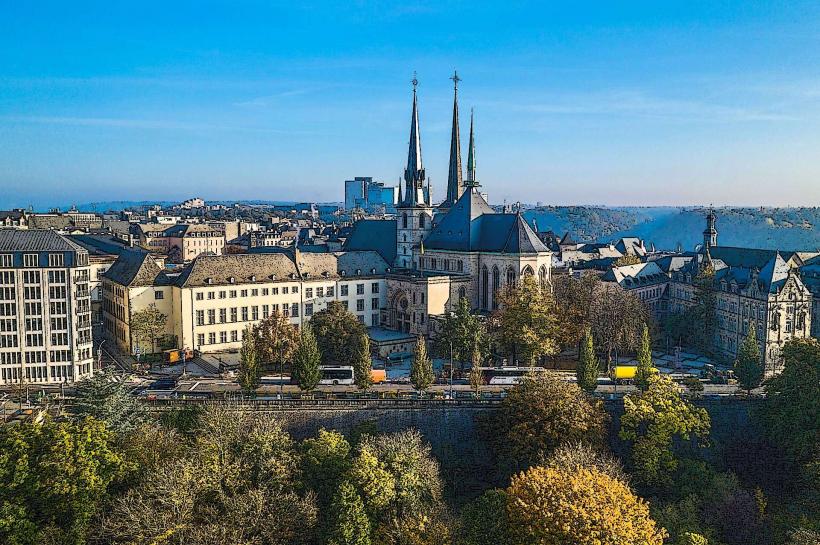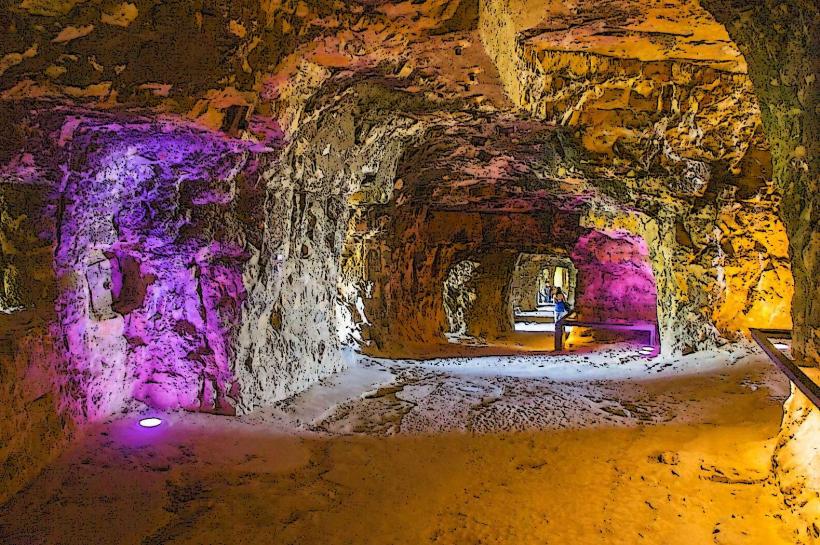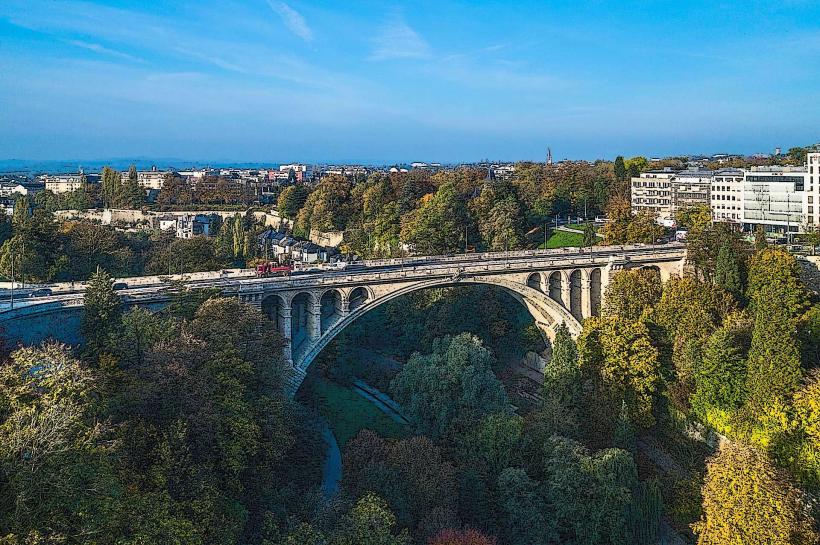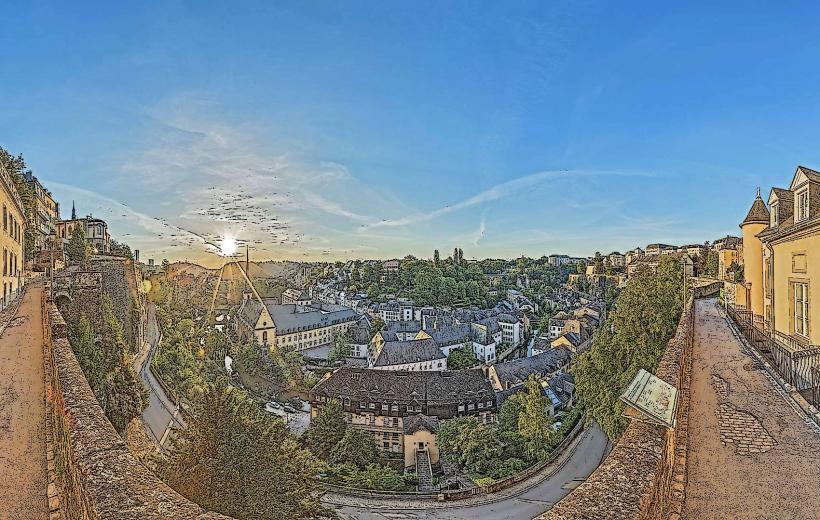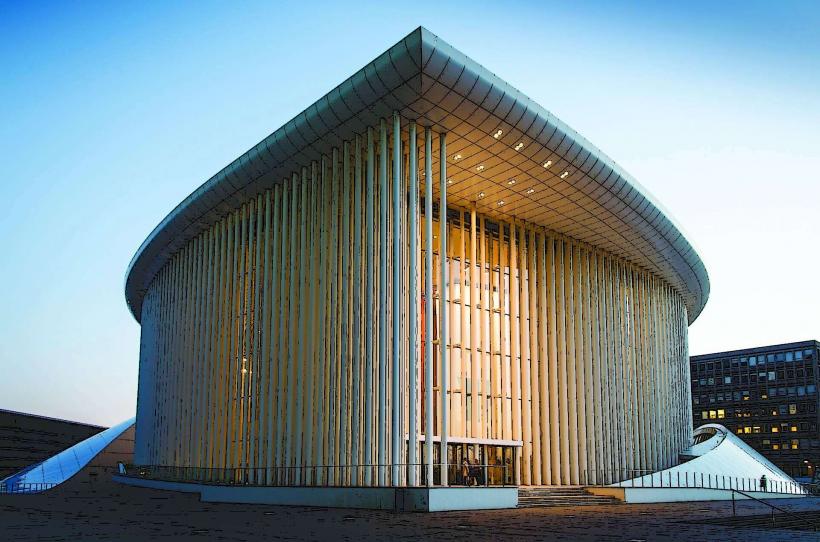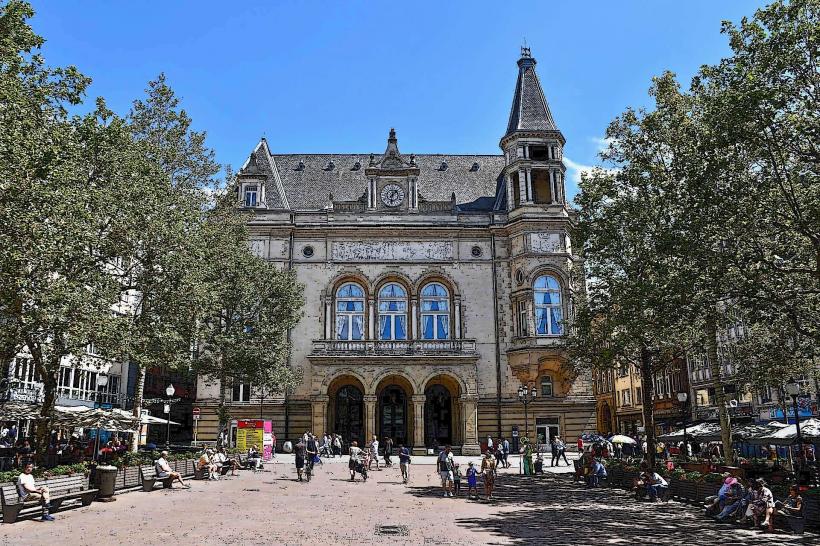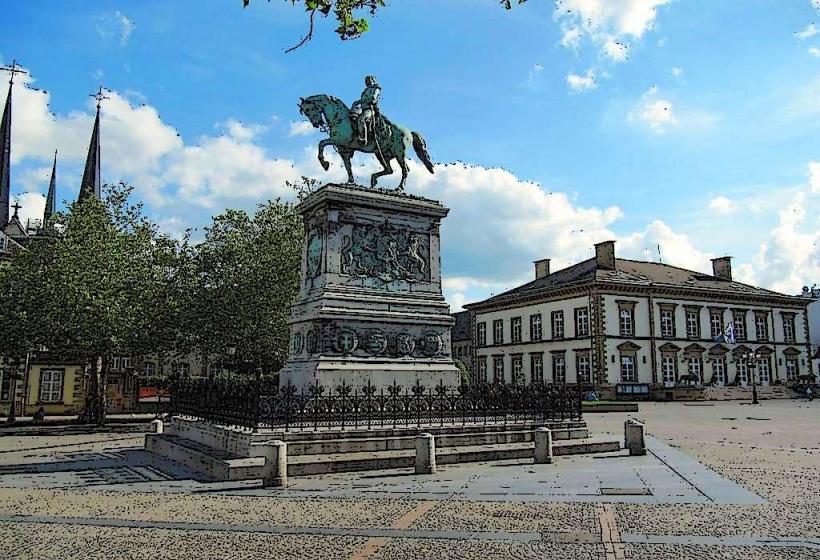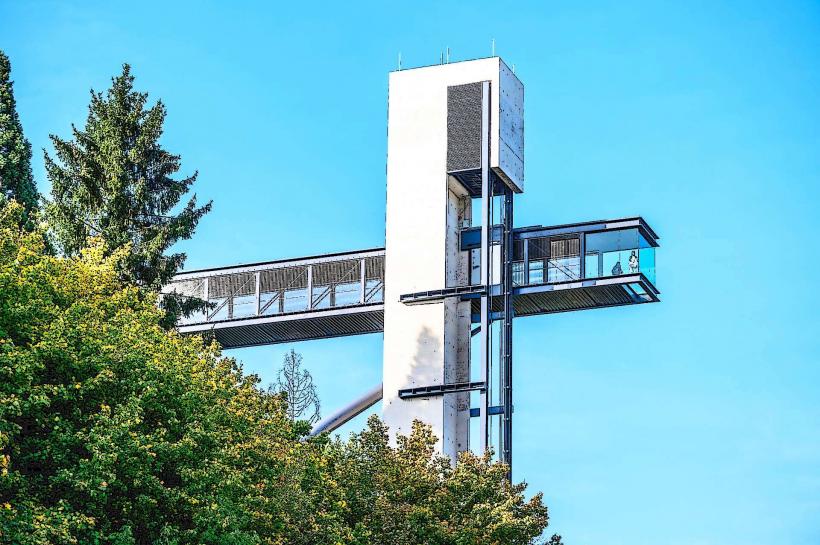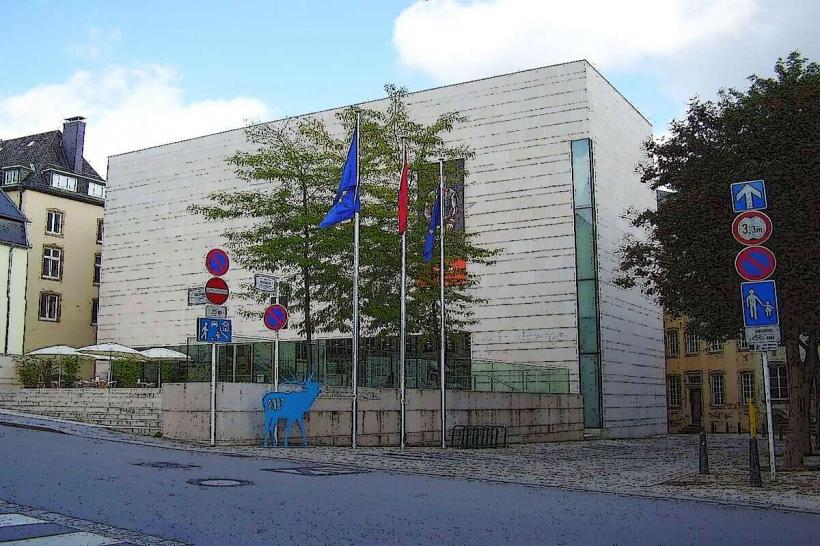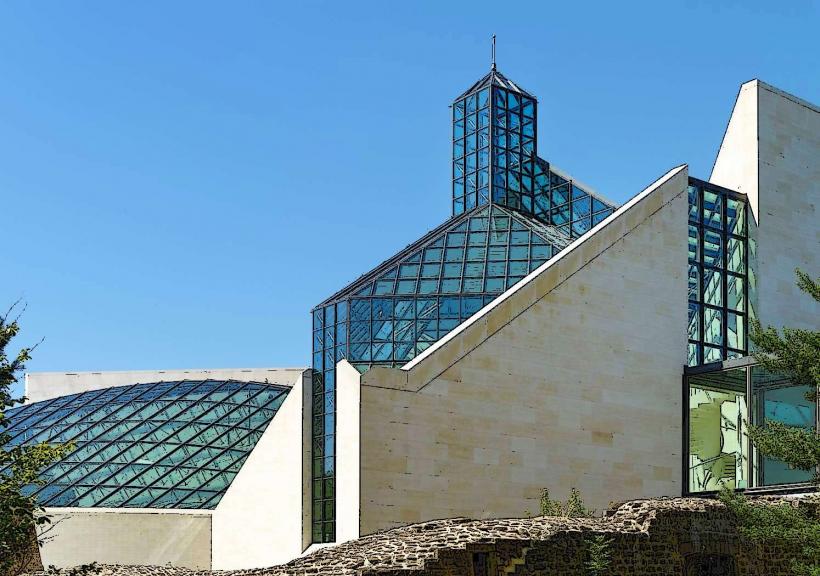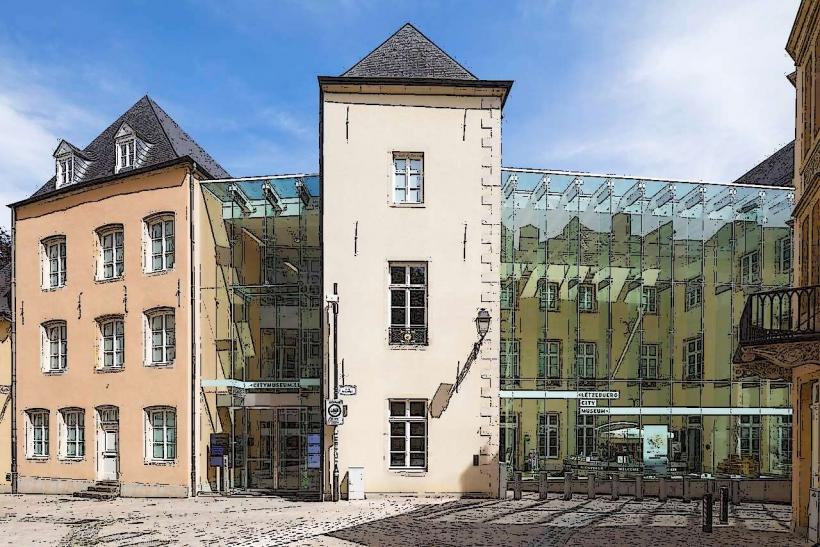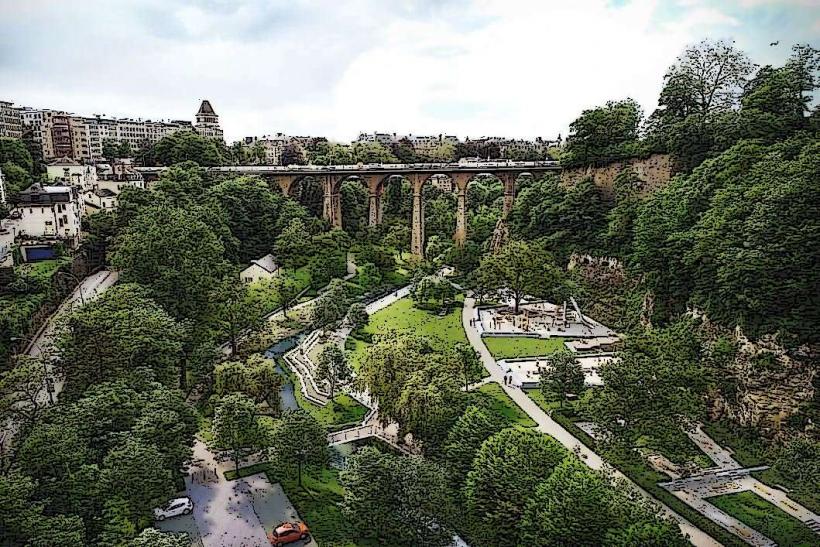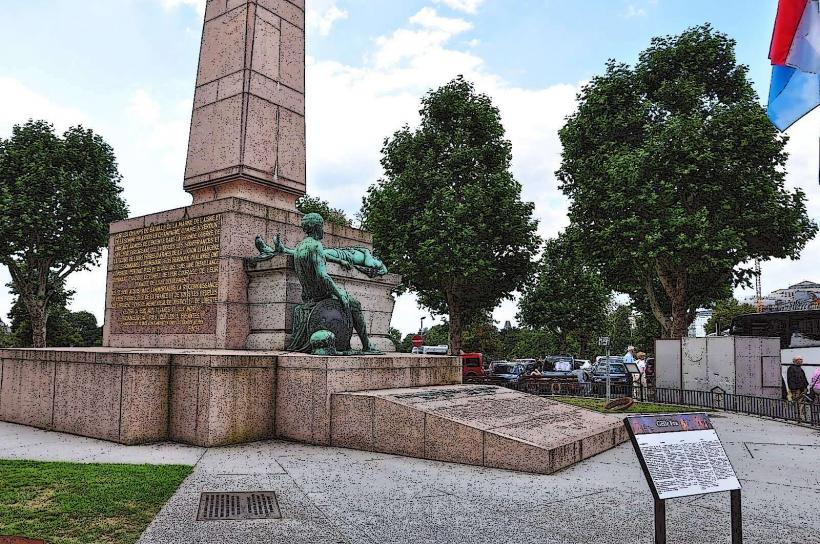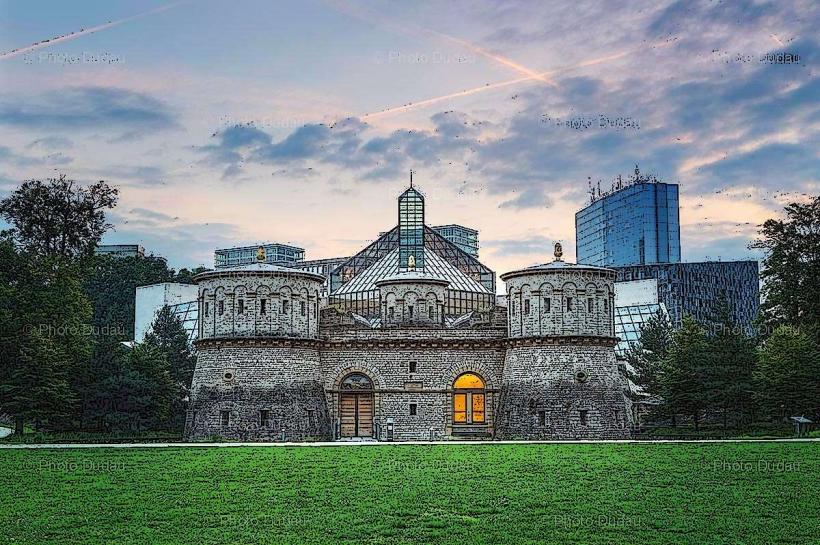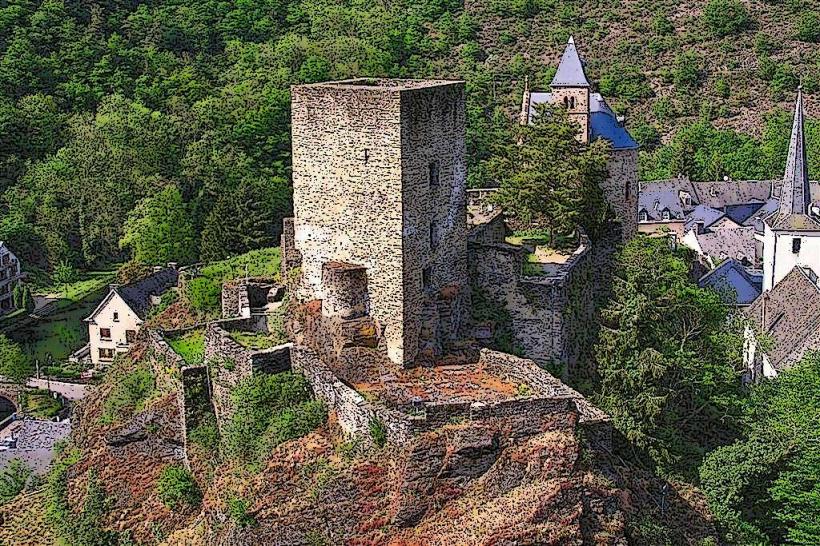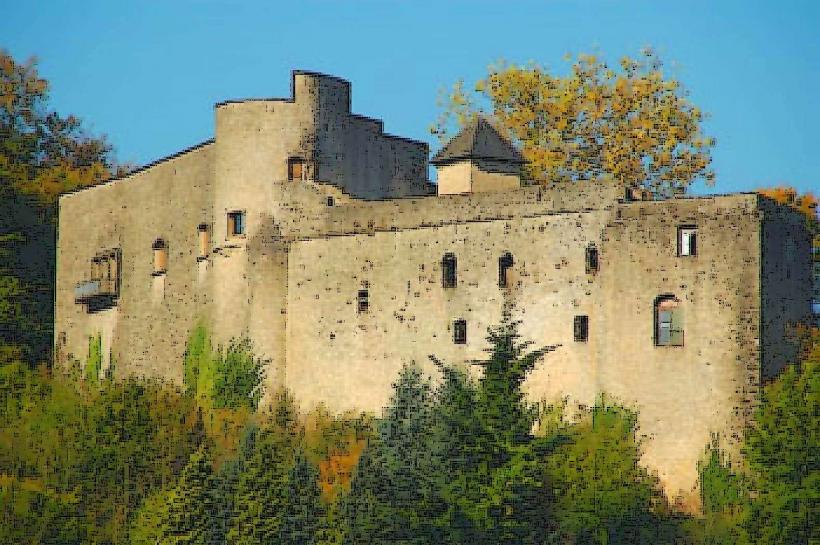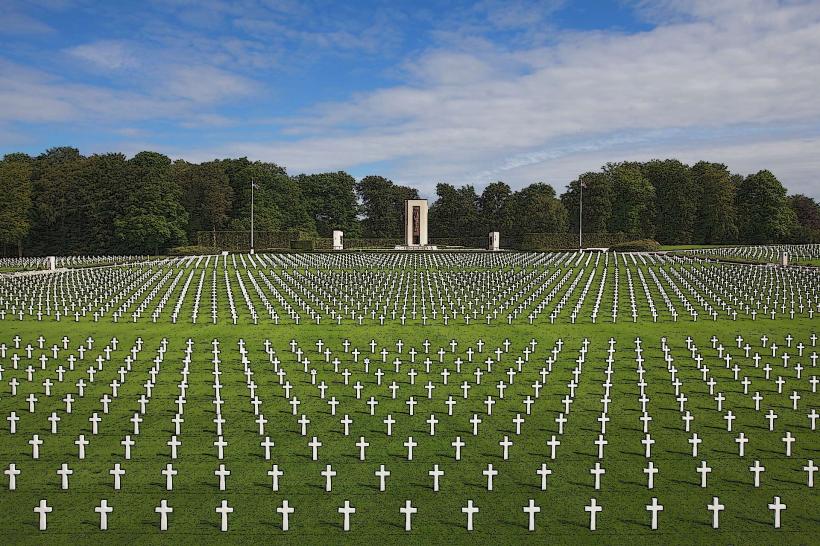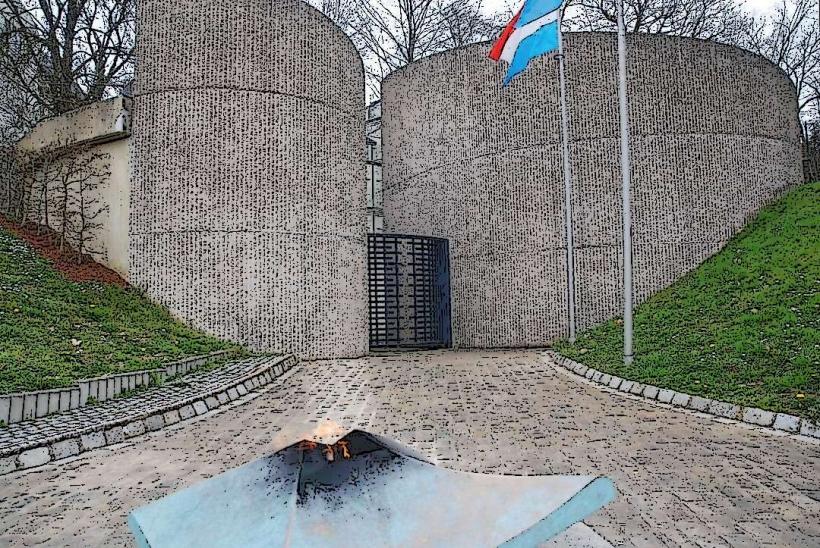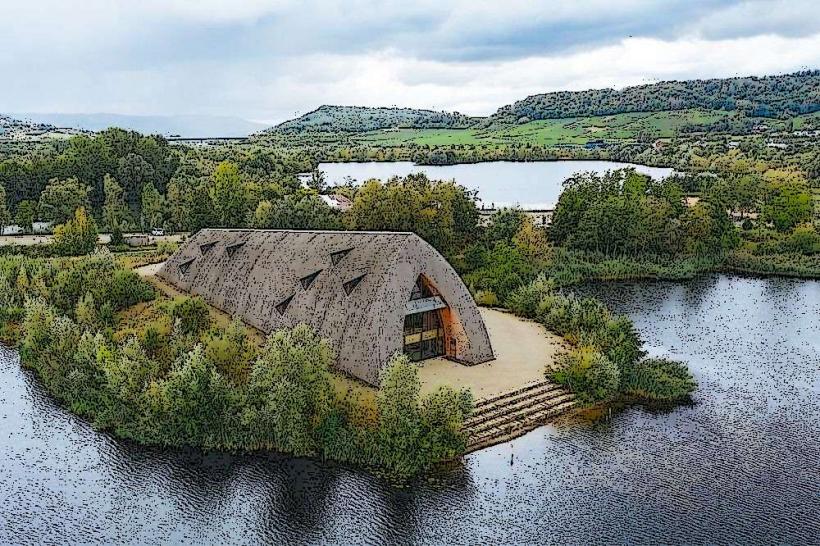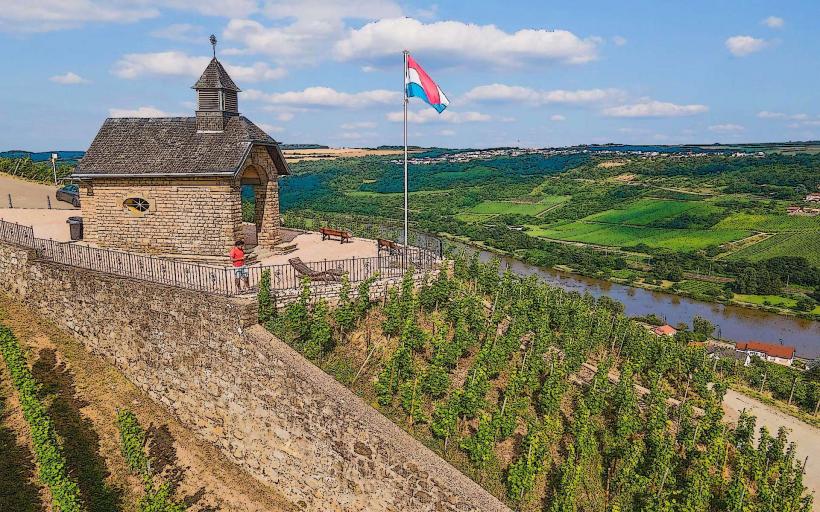Information
Landmark: Schengen European MuseumCity: Luxembourg City
Country: Luxembourg
Continent: Europe
Schengen European Museum, Luxembourg City, Luxembourg, Europe
The European Museum Schengen is a dedicated information center documenting the origins and impact of the Schengen Agreement. It is located in the village of Schengen, situated at the tripoint where the borders of Luxembourg, Germany, and France meet on the Moselle River.
Visual Characteristics
The museum is housed in a modern, angular building featuring a glass-and-steel facade that allows for high levels of natural transparency. The interior consists of a single-floor, open-plan exhibition space with interactive digital terminals, glass display cases, and a wall of historical passports. Outside, the "Place de l'Europe" features three steel steles with bronze stars and a segment of the Berlin Wall.
Location & Access Logistics
The museum is located at 6 Rue de l'Héritage, L-5444 Schengen, approximately 35 kilometers southeast of Luxembourg City. It is accessible via the A13 motorway (Exit 13). Public transport from Luxembourg City involves taking bus line 402 or 410 from the Gare Centrale, with a travel time of roughly 40 minutes. Dedicated parking for cars and coaches is situated 200 meters from the entrance.
Historical & Ecological Origin
The museum opened in 2010 to commemorate the 25th anniversary of the signing of the Schengen Agreement. The original treaty was signed on June 14, 1985, aboard the passenger ship MS Princesse Marie-Astrid, which was anchored on the Moselle River at this specific location. The museum serves as a permanent educational site regarding the abolition of internal border checks in Europe.
Key Highlights & Activities
Visitors can utilize interactive maps to trace the expansion of the Schengen Area since 1985. The museum offers a "Schengen Passport" station where visitors can print a personalized souvenir document. Group guided tours are available upon request, covering the museum and the nearby European monuments and "Columns of Nations."
Infrastructure & Amenities
The facility includes a tourist information desk, a small boutique, and accessible public restrooms. The entire museum is barrier-free for wheelchair users. While there is no on-site café, multiple bistros and wine cellars are located within 300 meters along the riverfront. High-speed 5G cellular signal is available throughout the site.
Best Time to Visit
The museum is open year-round, typically from 10:00 AM to 5:00 PM (until 6:00 PM in summer). Mid-week visits during the morning hours avoid school group congestion. The site is best visited in late spring or autumn to combine the museum tour with a walk through the surrounding vineyards and along the Moselle promenade.
Facts & Legends
The location was chosen for the signing specifically because it is the point where three nations meet, symbolizing the removal of barriers. A unique feature on-site is the "Lock of Nations," where visitors can attach padlocks representing their home countries, echoing the tradition of love locks but adapted for European unity.
Nearby Landmarks
European Monument – 0.1km East
MS Princesse Marie-Astrid Anchor – 0.1km North
House of Koch – 0.2km West
Burdelsmühle (Historic Mill) – 0.4km Southwest
St. Nicholas Church (Remerschen) – 2.1km Northwest



